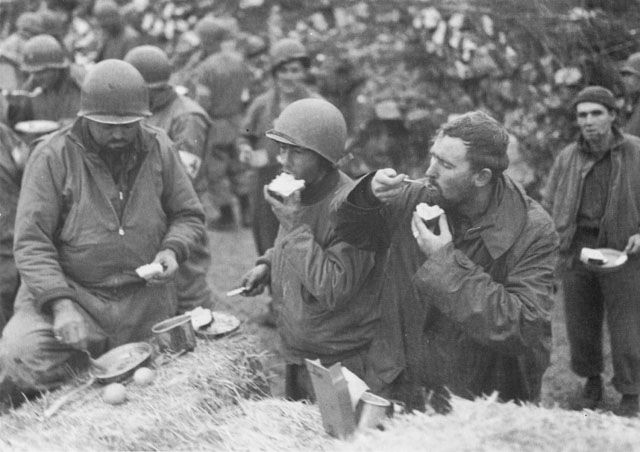A Christmas like One Other
It was Christmas. It was wartime. The soldiers were far from home, defending a patch of land that wasn’t quite theirs in the name of values they didn’t quite hold. At first perhaps they fought for patriotism or justice, but those are often the first things to die in a war.
But this was Christmas. And even during wartime, Christmas is Christmas. Regardless of your faith, there is a certain magic to the day. It is hard to not think about your family and your home. It is hard not to realise that your enemy also has a family and a home. And perhaps for the first time since this all began, you feel a kinship for your enemy, caught up like you in the gears of history. But before I continue, I think I should pause here—because I suspect some of you might be thinking of a different Christmas during a different war.
The Christmas Truce of 1914 is famous. An unofficial and unplanned ceasefire all along the Western Front simply because it was Christmas. And Christmas is Christmas. There are reports of football matches, carol singing and even minor gift giving amongst the warring soldiers. It is an incident that would never repeat for the remainder of the war, at least not in its full scale.
But that is not the Christmas I want to talk about. The Christmas I am thinking of took place in the Second World War. The event is similar but much less famous, for good reason. It involves only a handful of people and is effectively a footnote in one book. The setting is Buna, a small village in Papua New Guinea. A place of stifling heat, dense jungle and unrelenting rain. On the Christmas of 1942, the American troops were given meatloaf and peaches and candy to feast on (during wartime, that is what feasts entail). Meanwhile, the Japanese troops defending the island were on their last supplies. They were also located quite close to the Americans. So close in fact, that they could smell the Americans’ feast. And so we find an account of one Japanese soldier who was driven mad by the smells. So mad, in fact, that he stripped down to his underwear and wandered over to the Americans, pretending to be drunk. He would come back a few hours later carrying food for his comrades.
That is it. That is the whole story, at least as far as I know. I do not know what became of this unnamed soldier. I do not know whether he survived the war. I do not know whether he was able to share this story with his family. I do not know whether he had a family.
This is one of the bitter pills we must swallow when studying history: there will always remain things we can never know. Very few things are recorded and even fewer records survive the test of time. Luckily, history is not a lost cause. The essence of history is not the establishment of past facts; the essence of history is learning about ourselves by studying the past. And so I wonder what you will take from this story, my dear reader. Maybe, like me, you will see the parallels to the Christmas Truce, even if this tale is not quite as grand. Maybe you will find yourself celebrating human kindness, which appears even in the worst of circumstances. Maybe you will wonder why we keep putting people in the worst of circumstances. Maybe you rejoice that there are always days when people can put aside their differences and celebrate collectively. Maybe you mourn that we need a special day to do this.
I am no historian. I do not know what we should learn from this either. The only lesson I can see is the simplest one: Christmas is Christmas. So Merry Christmas dear reader, and a Happy New Year.

Source: The story of the Japanese soldier comes from Francis Pike’s book Hirohito’s War: The Pacific War, 1941-1945. Here is the relevant passage in its entirety:
Private Nishimura recorded a bizarre incident in which one of his colleagues, an English speaker, declared “I’ve had enough”: he stripped to his underpants and feigning drunkenness staggered toward the American lines. Silence followed, only occasionally interrupted by laughter. The Japanese soldier returned several hours later bearing food— a gift from the American soldiers a few yards away.
1 Woodcock, John. “England v Germany: When Rivals Staged Beautiful Game on the Somme.” The Telegraph, 17 Nov. 2013
2 Bajekal, Naina. “Silent Night: The Story of the World War I Christmas Truce of 1914.” Time, 24 Dec. 2014
3 Bairnsfather, Bruce. “Bullets & Billets.” Chapter VIII: Christmas Eve—A Lull in Hate—Briton cum Boche
